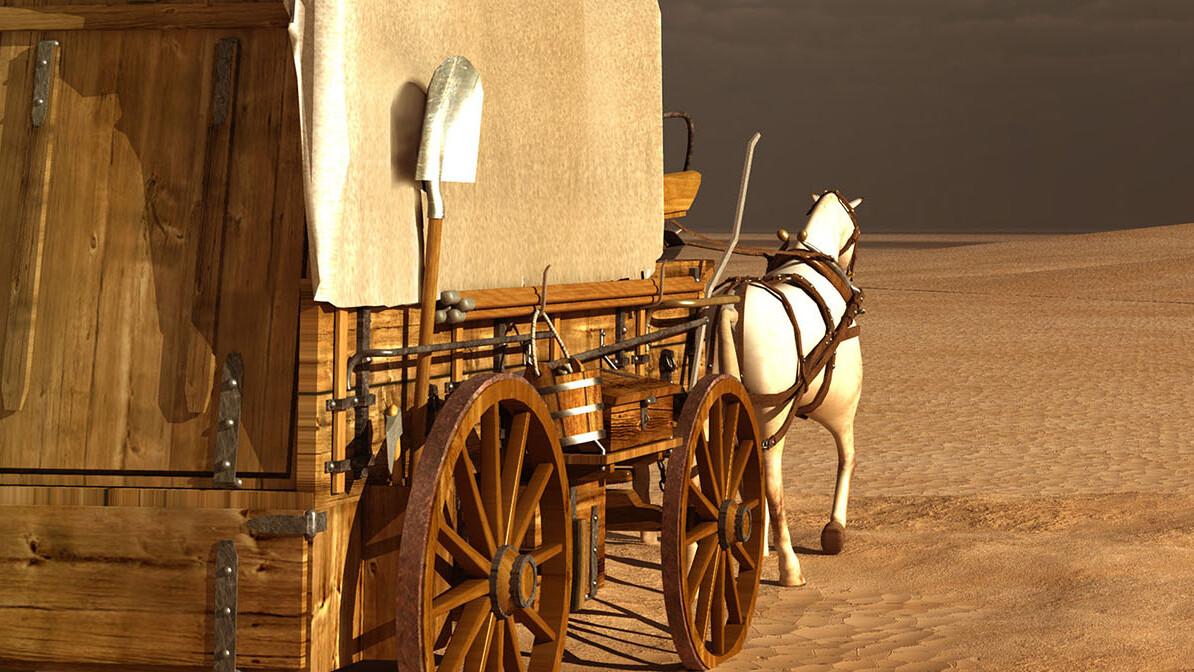
Circle the Wagons
 Excerpt taken from At War with the Big Dogs: How One Man in Need of a Job Started a Billion Dollar Industry by Chuck Masek
Excerpt taken from At War with the Big Dogs: How One Man in Need of a Job Started a Billion Dollar Industry by Chuck Masek
Chapter 6
Circle the Wagons
The most important lesson to remember is that failure is inevitable, but so is success, so rebound. — Naveen Tewari
It was Monday morning, the first Monday after I was fired from EnviroMed. The start of the work week—and the first time in my professional life that I had absolutely nowhere to be. It had only been three days, and I was already lost in the sense of stagnation that had burrowed deep into my soul.
The weekend passed in a blur as I did little more than sit on the couch while the household continued to function noisily around me. But the internal silence was deafening. My memory tells me that I sat on that couch for that entire Monday, marking the longest period of time in my adult life that I have remained entirely still. The stillness wasn’t serenity or stoicism. It was shock—staggering, stupefying, soul-draining shock.
As Nathan, our youngest child, tells it today, I wasn’t actually still. In fact, I was anything but still. Instead of stewing on the couch, he recalls me stalking the house like a caged animal, pacing back and forth as I raged. None of the children could understand my being at the house during the day, and they didn’t know what to make of it. Mostly the kids knew they should just steer clear of me.
Maybe the silence I recall wasn’t imagined, and perhaps the children were intentionally keeping quiet and out of my way to ensure that I didn’t lash out at them. My being suddenly at home was not easy on Marge either.
From the time my brother Ted and I had become adults and started to talk openly about our upbringing, he (with the benefit of six years of therapy) and I have readily agreed that he is more like our well-intentioned father, while I have the tendency to stir the pot, much as my mother did. It’s something that I have to guard myself against, even to this day. Marge and the kids had established a daily routine that was heavily dependent on my work, my goals, my schedule, and my travel itinerary—and it functioned better without input from me.
As our oldest son, Seth, vividly recalls, he only became aware that something had gone wrong with my job when I arrived home from work the Friday evening of my firing. Marge and I had already agreed that Seth could sleep over at his best friend’s house that night, but when I walked in the door, it was clear that this was no longer going to happen. The reason? Seth’s best friend was also the son of my now-former partner, Tom Howard.
When it came to Marge’s response to my presence in the house, all I can say is that I recognize just how fortunate I was that she focused all of her impressive ire on Tom, and not on me.
One of those first nights after Tom’s betrayal, Marge and I were lying awake in bed because neither of us could fall asleep. I was turning over in my mind how I could get us out of this mess and get us back on our feet as quickly as possible. Meanwhile, my wife, the sweetest woman you could ever meet, was thinking up ways that Tom might be knocked off his feet. Nothing too malevolent, of course, but a particularly uncomfortable case of stomach flu or an unpleasant encounter with a beehive sounded about right.
Whether because I failed to predict what Tom was capable of or, allowed him to come in as a true fifty-percent partner, I was ultimately responsible for EnviroMess, but that didn’t matter to Marge. I never experienced from her, even for one minute, the sense that I had failed or wronged our family.
Instead of turning against me, Marge turned toward me, and together we started to make plans. Marge’s toughness, resourcefulness, and unyielding faith in me were all brought to bear as she laid the groundwork for how we would survive this setback, emotionally, mentally, financially, and otherwise.
In that moment, lying in darkness and sensing the light of her spirit, I felt she gave me more than I could have ever imagined—certainly more than any man could deserve. I tell people, “If you call me an ——- in front of Marge, you may be right … but you will only gain a lifelong enemy.”
It quickly became apparent that the friends who had been at my side on the way up weren’t necessarily going to remain at my side during the fall—not that I could blame them. After the initial shock wore off, I was plunged into a period of deep reflection, some might even call it depression, during which I was forced to examine my attitudes and actions from the preceding years. I had time to think about how I treated people, how I made them feel, what motivated me, and what mattered to me.
It is said that pride goes before a fall. Had I been too proud? Did I somehow deserve this? I knew with certainty that Marge and the children did not. The thought of them having to endure uncertainty over how we would survive sank me lower than I could ever have imagined. As parents, we had always tried to shield our children from the challenges of our family finances. The thoughts of any of them worrying and suffering as a result of what had happened with EnviroMed was unbearable for me. Marge and I had never come this close to not being able to cover the essentials. We were in real trouble, and I had to do something.
Although I didn’t feel any positivity about my circumstances, I knew I had to put a positive spin on things—possibly for myself, but certainly for others. People instinctively respond to positivity; they seek it out. And people guard themselves against self-pitying behaviors. This was a time in my life when I needed others to feel comfortable being around me. Wallowing and complaining wasn’t going to endear me to anyone. I had never needed my people skills—or people who might connect me to the next opportunity—more than now.
At the same time, I wasn’t going to hide what had happened to me. I ran into someone I knew who said, “How’ve you been, Chuck? I heard you got screwed.”
I told them, “Marge and I hit a bump in the road, no doubt about that, but we’re looking forward to the future and have every reason to be optimistic about it.”
That was the end of it—the last mention of EnviroMed in our conversation. I didn’t vent every time I was given the chance or take every opportunity to share my tale of woe. I said that I was grateful for the experience and was using it as an opportunity. I don’t know if I initially believed what I was telling people, or how long it took for me to believe it, but I made sure to act like I did.
Marge has an apt metaphor to describe me. She says I’m like a buoy out on the ocean. No matter how violent the waves or how long I’m held under the water, I will bounce back up to the top, as resilient as ever. No matter how I’m pressed down, I can’t help but rise to the surface.
Marge worked the numbers to budget our meager resources while I took stock of my skills. I sat on the couch and thought long and hard about myself. Let me tell you, examining yourself in such a way after you’ve spent so long defining yourself in terms of hours worked, deals closed, and job titles achieved, is no easy task. I’d been working since I was a teenager, but where did my talents actually lie? What was I good at and enjoyed doing?
The answer to every question I asked was sales. It was what filled me with confidence, excited me, and would allow me to best support my family, what would challenge and engage me. I had spent the past fifteen years honing the skills I relied on in childhood to diffuse those dangerous situations with my father and I had become a successful salesman, thanks in part to him. I also loved being a salesman. Selling to people was not a productive exchange but an enjoyable one—for them and for me.
I needed to get back to selling.
Thankfully, I discovered that there was still a need for my particular set of skills. Even as I was questioning so much about who I believed I was, I didn’t doubt that I had to keep my promise to myself to stay independent. I needed to maintain some sense of control at a time when I felt unmoored.
The initial step I took was to incorporate as a consulting business under the name Vanguard Medical Concepts. My first customer was Charleston Area Medical Center (CAMC), which offered me a short-term consulting contract. I spent several months in West Virginia and supported the family from there.
CAMC, one of the largest employers in the state of West Virginia, paid me fifty thousand dollars to help them better understand costs and whether they should make the move to produce their own custom procedure trays. Although CAMC ultimately decided to stay with their current vendor, thanks to my help, they were able to get a much better deal. I felt pretty good about that—especially since their vendor was DeRoyal! At the time, I had no way of knowing just how vindictive manufacturers can be, and how personally they take it when you mess with their bottom line.
My next move was to attend the 1991 Association of Operating Room Nurses (AORN) Surgical Conference and Expo, the largest gathering of perioperative nurses in the nation, which was being held in Atlanta, Georgia. My plan was to hunt for manufacturers who were looking for independent sales reps to carry their products, and I found them.
Don Burt, who had introduced Tom Howard and me to EnviroMed’s production contact in Haiti, was also in the medical devices field. Don happened to have a vendor’s booth at AORN that year. He knew of my situation and was kind enough to let me make the drive with him from Tampa to Atlanta. He even allowed me to share his hotel room.
At the conference, I furtively ate my dinners in the manufacturers’ hospitality suites, which offered big buffet tables of hors d’oeuvres. I was in a sorry situation, hungry and unable to buy myself dinner.
Also attending the conference was Dick Isel—a man about whom it was once said, “Wherever Dick goes, he makes money while others lose it.” I don’t know which was worse: avoiding Dick or sneaking into those hospitality suites for dinner.
I would gladly have eaten my lunches there too, except lunches weren’t catered. So, on my first afternoon, I left the conference center and walked over to a McDonalds. Back then you could buy two burgers for a dollar. I lowered myself into a plastic chair and unwrapped my sad-looking burgers. As I bit into the first bun, I felt hot tears streaming down my face. How did I get here? Just how the —- did I get here?
Sitting in that fast-food joint was an emotional and spiritual turning point for me. I’m not sure of the source, but within a moment of roughly brushing away my tears, I heard, Stop it, you’re fine. The you’re fine echoed from somewhere deep within me. And yes, I was. I was alive. I was fine. I would move on, and soon I would be better than fine.
I stopped crying and closed the door on any emotion I felt about my situation. Finishing the burgers, I rose from my seat and returned to a conference where thousands of decision-makers were just waiting for me. They would play a role—a supporting role—in my rise from an almighty fall.
By the time I returned to Florida, I was carrying a few products and calling on hospitals in the Tampa Bay area, starting over in the same territory I had once dominated. Although humbling, it was an opportunity I was grateful to have. It was an opportunity I was hell-bent on seizing.
…
Order a copy of At War with the Big Dogs: How One Man in Need of a Job Started a Billion Dollar Industry by Chuck Masek
Trending Now
Sign up today for your Inspiration Today Daily Newsletter
Supercharge your faith and ignite your spirit. Find hope in God’s word. Receive your Inspiration Today newsletter now!
Chuck Masek
Chuck Masek is a perennial entrepreneur who has grown and sold several businesses. He is a man of faith and family. He has spent his career striving to make positive and meaningful changes in healthcare. Learn more at odi-na.com
Related Articles
January 29, 2026
5 Traits of Good Leadership
The traits of good leadership aren’t just about results—they’re about relationships. Servant…
December 9, 2025
End-of-Year Giving Benefits: Tax Savings, Legacy Gifts & Stewardship
As the year draws to a close, many believers take time to reflect on God’s goodness, their personal…
November 29, 2025
What Does the Bible Say About Finances?
Learn what the Bible teaches about money, giving, and contentment. Explore 10 scriptural principles…
November 20, 2025
Can You Smile at Your Future?
When you make the Lord your dwelling place amid life’s storms, you can rest confidently in His…
Next Steps To Strengthen Your Walk
Inspiration Today Newsletter
Supercharge your faith and ignite your spirit. Find hope in God’s word. Receive your Inspiration Today newsletter now!
Christian Articles
Find articles to strengthen your walk and grow your faith. We have a wide range of topics and authors for you.
Submit A Prayer Request
We are here for you. Simply click on the button below to reach us by form, email or phone. Together we will lift our hearts and voices with you in prayer.





